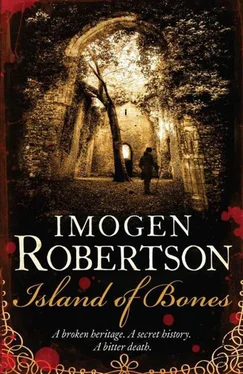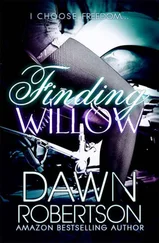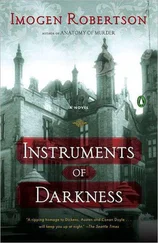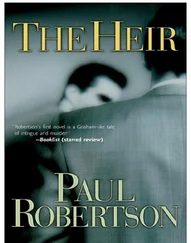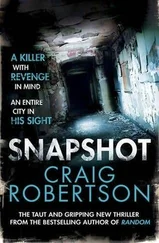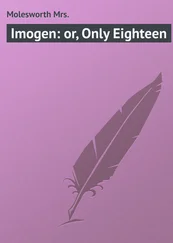Imogen Robertson - Island of Bones
Здесь есть возможность читать онлайн «Imogen Robertson - Island of Bones» весь текст электронной книги совершенно бесплатно (целиком полную версию без сокращений). В некоторых случаях можно слушать аудио, скачать через торрент в формате fb2 и присутствует краткое содержание. Год выпуска: 2011, ISBN: 2011, Издательство: Hachette Littlehampton, Жанр: Исторический детектив, на английском языке. Описание произведения, (предисловие) а так же отзывы посетителей доступны на портале библиотеки ЛибКат.
- Название:Island of Bones
- Автор:
- Издательство:Hachette Littlehampton
- Жанр:
- Год:2011
- ISBN:9780755372058
- Рейтинг книги:3 / 5. Голосов: 1
-
Избранное:Добавить в избранное
- Отзывы:
-
Ваша оценка:
- 60
- 1
- 2
- 3
- 4
- 5
Island of Bones: краткое содержание, описание и аннотация
Предлагаем к чтению аннотацию, описание, краткое содержание или предисловие (зависит от того, что написал сам автор книги «Island of Bones»). Если вы не нашли необходимую информацию о книге — напишите в комментариях, мы постараемся отыскать её.
Island of Bones — читать онлайн бесплатно полную книгу (весь текст) целиком
Ниже представлен текст книги, разбитый по страницам. Система сохранения места последней прочитанной страницы, позволяет с удобством читать онлайн бесплатно книгу «Island of Bones», без необходимости каждый раз заново искать на чём Вы остановились. Поставьте закладку, и сможете в любой момент перейти на страницу, на которой закончили чтение.
Интервал:
Закладка:
Mrs Briggs had presumed the subject would be forgotten as the cards were laid down, but the following morning Mr Sturgess had called at Silverside to tell them that the vicar of Crosthwaite would be happy to receive the tomb and the bones it contained, and to give Sir Luke and his wife a home on consecrated ground. The Vizegrafin began to draw plans for a summerhouse. Mrs Briggs was still not convinced about the necessity of rebuilding, but at least the nagging guilt about the First Lord Greta’s mortal remains would be removed, and she was hopeful that the Vizegrafin and her son would leave Silverside before she had to commit to constructing any of the gothic wonders that now decorated that noble lady’s sketchpad.
The Vizegrafin moved swiftly towards the tomb, leaving Mrs Briggs to follow her. As she passed, Mrs Briggs noticed spots of colour on her guest’s cheeks. She bore down on the two labourers whose efforts had finally dislodged the cover from the tomb. Thin-faced, mean-looking men, they stood behind the opened tomb like penitents with their heads lowered and their caps in their hands. The Vizegrafin’s dark-blue skirts brushed over the stone flags, stirring last autumn’s dead leaves. She walked with a straight back and a quick even step that had been perfected by a number of expensive dance masters in her youth, so she gave the impression of floating from one place to the next in time to some unseen music. To the men at the tomb, it seemed as if one of the prettier saints had broken free of the stained glass in Crosthwaite Church, but she aged as she approached through the shadows of ruined masonry and overhanging foliage. The young and graceful female became, as she drew closer, a woman something over forty whose dress and deportment were perhaps a little more hopeful than wise.
Mrs Briggs glanced at the effigies of Sir Luke and his wife. Their stone faces had become washed and worn with rain and snow. They looked weary and ready for a warmer bed Their hands were held over their chests in attitudes of prayer. At the lady‘s feet, a greyhound was curled with its alabaster nose tucked into its tail, and its ears flat; at the gentleman’s sat a tiny lion, its mane carved in carefully tumbled locks. It reminded Mrs Briggs of the style Felix von Bolsenheim had of arranging his hair. He had avoided their party, calling his mother morbid, and taken his longbow out to hunt rabbits on the fells instead. The Lady had apple cheeks; the Lord was bearded and had a long nose. Mrs Briggs had recently donated, from the collection at Silverside Hall, a portrait of this gentleman to the new museum in Keswick. She had always felt that the portrait disapproved of her and had been glad to be rid of it, having deserted it in an upper corridor for thirty years. The painted face seemed to her always to be stiff with outrage that his lands were now in the possession of a man who had started life as a clerk.
The Vizegrafin reached the lip of the tomb and looked down into it, then gave a little screech and hastened away. Mrs Briggs approached more carefully and took in the sight with less eagerness and greater calm, Mr Sturgess at her side. There were two wooden coffins within, as had been advertised by the effigies, and though worn and rotten, their structures had held. But across the two coffins lay this extra body, a corpse incongruous even in a tomb. It was curled head to knees, its flesh turned leathery, its clothes faded, its mouth pulled wide open. There was a dry, almost sweet scent to the air. Even Mr Sturgess looked pale and Mrs Briggs so far forgot herself as to bite the side of her thumb. She thought the Vizegrafin noticed and frowned at her.
They were silent a moment. Mrs Briggs could hear the call of the lapwing on the Walla Crag, and the regular beat of the woodsman’s axe in the park on the opposite side of Derwent Water.
‘How very odd,’ she said at last.
‘What are we to do?’ the Vizegrafin questioned, glancing between them. ‘Mr Sturgess, as magistrate here, can you advise us? Who is this man?’
‘I cannot possibly tell you, madam.’ He stepped away, considering. ‘This body may be nearly as ancient as those on whom he lies, or he may have died within five years. Who can say? But perhaps the body might rest at Silverside Hall while some enquiries are made, Mrs Briggs? One of our older residents may remember a man gone missing, though I myself cannot recall any such matter in my time here. If not, then I suppose Crosthwaite Church may give him a Christian burial. I cannot see what else might be done.’
‘Perhaps we should summon my brother Charles,’ the Vizegrafin said quietly, then, as she found the others looking at her: ‘You know he has become quite renowned at ferreting all sorts of information from a body. It might interest him. Will you be so kind as to invite him, Mrs Briggs? And there is a woman, a widow now who seems to involve herself in his interests. You had better invite her too. They might arrive in time for your party if you are willing to go to the expense of an express.’
‘They would be very welcome at Silverside Hall, Vizegrafin.’
‘I understand from the newspapers that my brother lives in Sussex now, and goes by the name of Gabriel Crowther. The woman’s name is Harriet Westerman.’
I.2
Monday, 7 July 1783, Caveley Park, near Hartswood, Sussex
Gabriel Crowther rode up to Caveley Park at a furious pace and handed his sweating horse to the stable lad without a word. On being shown into the salon where Mrs Harriet Westerman was at work at her accounts, he took advantage of long friendship by throwing himself down on the sofa at the far end of the room and staring at her carpet with an expression of loathing. If he noticed that Mrs Westerman’s young son and his tutor were in the room and working at their lessons within a few feet of him, he gave no sign of it. Harriet had looked up from her papers long enough to mark him and his manner, but she continued to write as she spoke.
‘Mr Quince. It seems Mr Crowther is not in one of his sociable moods. Perhaps you and Stephen may continue this morning’s work in the library.’
Mr Quince, who resembled nothing so much as an egg that had learned the trick of tying a cravat, stood and gathered his pupil’s books, made his bows and headed for the door at once. Stephen followed him, but reluctantly, looking back at his mother. She noticed and smiled at him. ‘Off you go, young man. And work hard at your sums. I feel the lack of such learning today.’ He sighed noisily, and though his shoulders slumped he followed Mr Quince dutifully enough.
As Harriet turned back to the pages in front of her she noticed she had smudged the ink of her last entry with her sleeve. ‘How did I become so clumsy with my pen?’ she said, as much to herself as her companion, and tried to dab at the mark with her handkerchief. It seemed to spread. ‘At least when I was in full mourning the marks were not so visible. Now Mrs Heathcote finds a new one to scold me over every week.’ Seeing that Crowther was still intent on her carpet she tucked one of her red locks behind her ear. ‘The most current Advertiser is under the cushion to your right, Crowther.’ She looked back down at the accounts in front of her.
Harriet Westerman had been a widow for some twenty months now and was beginning to become accustomed to her grief. She had put off her mourning clothes with regret a year after her husband was murdered. Her dresses had continued muted in their tones another six months, but as the spring of 1783 had shown itself in the bright green fuzz on the silver birches, and the hawthorn had begun to star the hedgerows around Hartswood with white, she had felt she was required once more to adopt the colours she had worn as a hopeful wife and mother. It was necessary. Her husband’s success as a Captain in the Royal Navy had earned him a handsome estate. Now it needed to be managed, and Harriet realised that her steward came to her more readily when he did not fear he would be interrupting her grief. She had two children, Stephen and his sister Anne. She wanted them to grow up cheerful and active, and knew that they therefore needed an example of cheerfulness and activity in their mother. Her mourning ring she kept on her left hand alongside her promissory ring. It was small enough to feel like a purely personal indulgence and she tried to check her habit of twisting it to and fro on her finger when alone or in deep thought. The residents of Hartswood, her family and friends, began to congratulate themselves and each other on her apparent recovery.
Читать дальшеИнтервал:
Закладка:
Похожие книги на «Island of Bones»
Представляем Вашему вниманию похожие книги на «Island of Bones» списком для выбора. Мы отобрали схожую по названию и смыслу литературу в надежде предоставить читателям больше вариантов отыскать новые, интересные, ещё непрочитанные произведения.
Обсуждение, отзывы о книге «Island of Bones» и просто собственные мнения читателей. Оставьте ваши комментарии, напишите, что Вы думаете о произведении, его смысле или главных героях. Укажите что конкретно понравилось, а что нет, и почему Вы так считаете.
